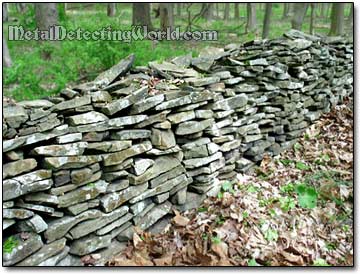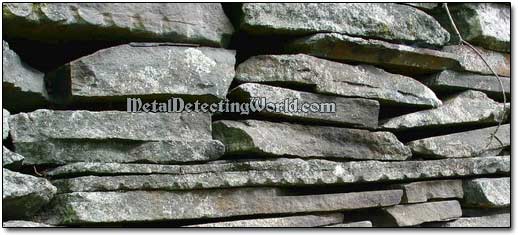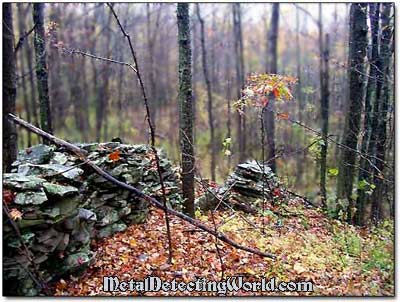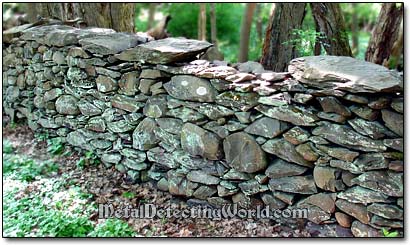Metal Detecting Research and Exploration - A Complete Guide, page 47
Footwork and Observation
EXPLORING STONE WALLS and FENCES
(CONTINUED from Page 46)
In some regions of New England such as the Catskill Mountains in Upstate New York, the stone fences were constructed with flat pieces of blue stone - a great example of the Irish masons' long lasting handiworks.
Stone Wall in Ulster County, New York State

At a close look, one can see the drill marks on the edges of blue stones quarried nearby.
Blue Stone Wall at Close Look, Bearsville, New York State

Stone walls were usually topped with one or two wooden rails which have since disappeared into fireplaces as fuel, or rotted away with the years. Stone fences were not only property divisions but also did the chore of keeping cattle in as this was regulated by the strict Law of the period. During the hot summer days, stone walls provided a shade for a farmer while he was resting, napping, and... losing small personal items and coins rolling out of his pockets.
Over many years, the abandoned farm lands have been reclaimed by the second- and third-growth forest, but the stone walls are still standing and indicating the boundaries of former farm fields and properties.
Stone Wall in Fulton County, New York State

When metal detecting around a cellar hole or foundation, it is important to search the areas on both sides of the stone wall that encloses the property. Kids used to play on the fence railings and also lost coins, toys and many other things they carried on them for trading with friends.
Also being in close proximity to the house, the stone wall would be a good landmark for stashing treasures either in it, under it or near it. Many coin caches and other relics have been recovered from the stone walls by treasure hunters. Not to mention single coins, jewelry items and buttons found in between the stones of the walls.
Stone Wall in Columbia County, New York State
